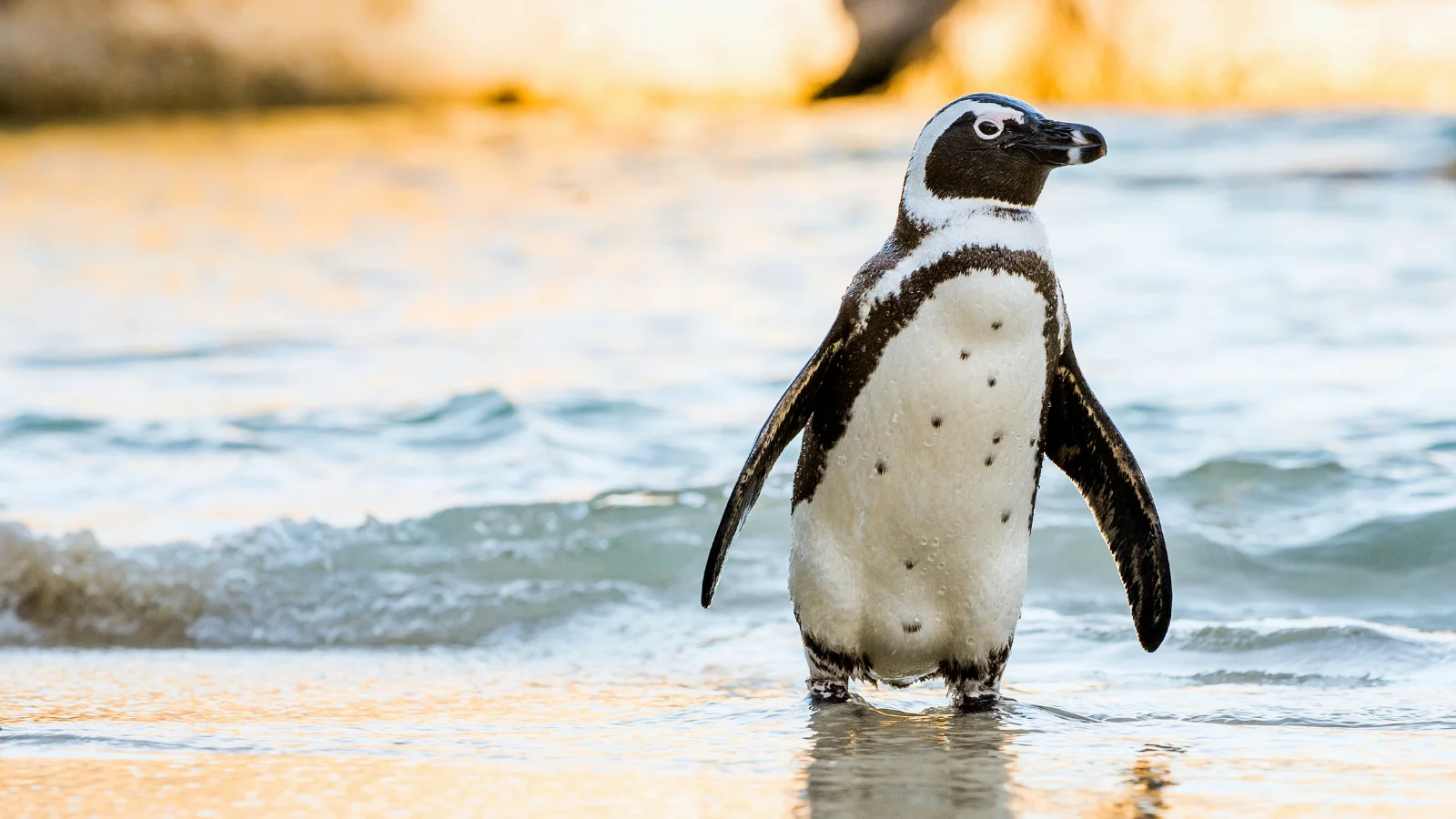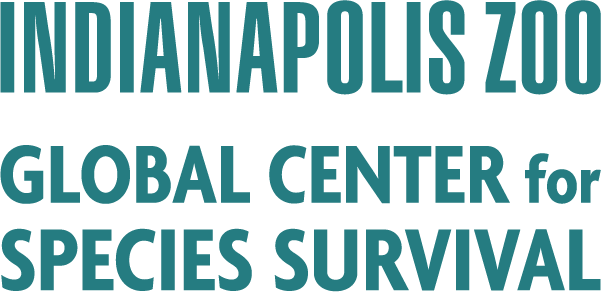
Protecting African Penguins
African penguins are Critically Endangered, in large part because they struggle to access sufficient fish for them to eat and to feed their chicks. That’s why seabird scientists have spent more than a decade fighting for fishing closures around African penguin breeding colonies. When humans and animals share finite resources, it can lead to problems. 15 years of problems in this case, which culminated with a recent settlement that’s being hailed as a win for penguins.
As The Guardian reports, “South African conservationists and fishing industry groups reached a legal settlement on no-fishing zones around six of the penguins’ major breeding colonies.” The conservationists referenced by The Guardian are BirdLife South Africa and SANCCOB (the Southern African Foundation for the Conservation of Coastal Birds). The organizations say, “The six closures work together to secure biologically meaningful foraging areas for African penguins.”
The Global Center spoke with our partners at the IUCN SSC Penguin Specialist Group to better understand the threats facing African penguins and the recent legal settlement.
Threats to African penguins include marine vessel noise, pollution, predation, disease and extreme weather events. But experts say it’s reduced availability of food—as a result of declining fish stocks, climate-mediated shifts in prey populations and competition with sardine and anchovy commercial fishing—that poses the biggest threat, leading to malnutrition and low breeding numbers. African penguin breeding pairs dropped from more than 15,000 in 2018 to just 8,750 at the end of 2023.
The new settlement calls for a 10-year halt to fishing in designated areas. The timing is critical, because scientists predict that if nothing is done, African penguins will be extinct in the wild by 2035.
“These closures agreed to in the settlement are certainly a conservation win for the African penguin, although there is still more work to be done to save this species,” explains Dr. Lauren Waller, co-chair of the IUCN SSC Penguin Specialist Group. The Global Center corresponded with Dr. Waller over email, and she says seabird scientists have been recommending fishing closures around African penguin breeding colonies for more than 15 years. She commends BirdLife South Africa and SANCCOB, as well as their legal team at the Biodiversity Law Centre, for what they achieved with the new settlement. The no-fishing areas expand current closures, particularly at Stony Point and Robben Island.
Jenny Grigg, who recently completed her PhD thesis, found that a fishing closure to the extent of a 20-kilometer radius around Robben Island could result in the colony there increasing after 10 years, making the successful implementation and enforcement of this settlement vital to the recovery of African penguins at this site (J. Grigg et al., 2022). The closure at Stony Point, as agreed to in the settlement, is more than double what it was prior to the settlement and includes a large portion of the penguins’ core foraging area and so is definitely a win for penguins in this colony. However, the closure around Dyer Island may have little benefit to population recovery at this site. Dr. Waller explains, “Very little fishing takes place in [the fully enclosed] area, so closing it will have little benefit for the penguins, but the area just adjacent to this is both important to the penguins and the sardine and anchovey industry. Vessels less than 26 meters, which constitute a large portion of the fleet, are still allowed to fish in this zone, and so there is essentially no closure around Dryer Island.
Still, Kate Handley, Executive Director of the Biodiversity Law Centre, says the legal settlement is, “a long-overdue step towards securing [African penguin] survival in the wild and bringing this species back from the brink of extinction.”
The push for greater protections continues, with conservationists stressing that the threats facing African penguins are complex and ongoing. Nicky Stander, Head of Conservation at SANCCOB, says, “We must continue to advocate on the basis of our scientific research, and implement effective conservation strategies to ensure that African penguins will thrive in the future.”
To read a more in-depth report about the legal settlement and African penguin conservation work, check out a press release posted to our Newsroom page.
This blog was a collaboration between experts at the Global Center for Species Survival, including Marine Conservation Coordinator Coralie Palmer and Bird Conservation Coordinator Dr. Sam Ivande. We’re also grateful to the IUCN SSC Penguin Specialist Group, particularly their co-chair Dr. Lauren Waller, for contributing time and expertise to this post and for all they do to protect wild penguin populations.
Published April 4, 2025

